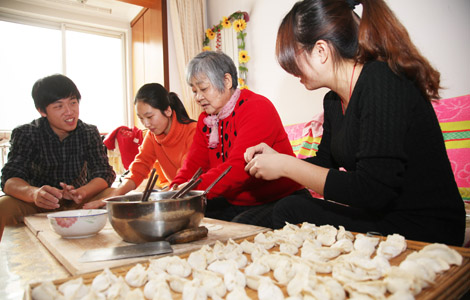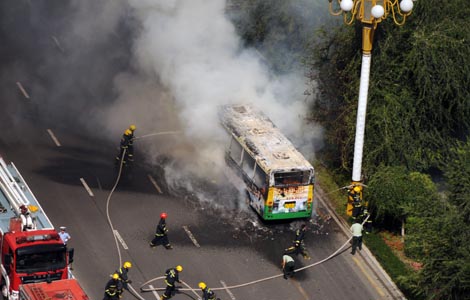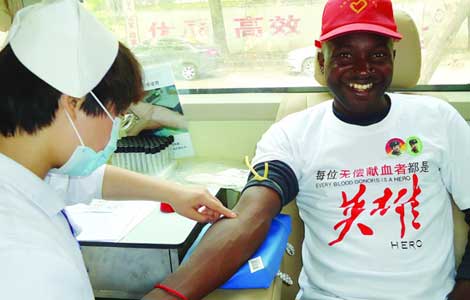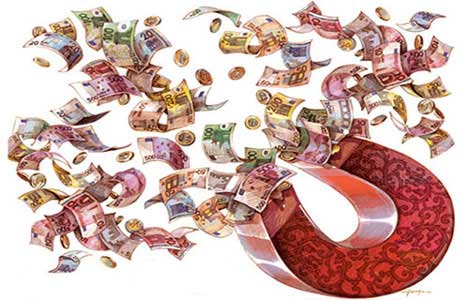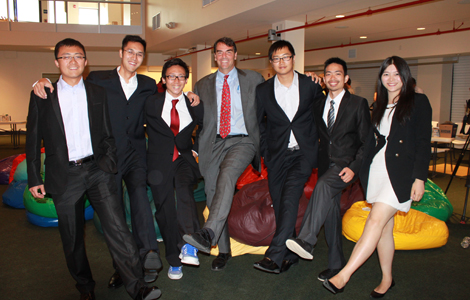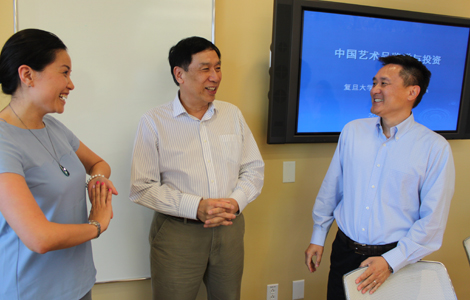Uncertainty dogs grads' job prospects
Updated: 2013-07-30 07:19
By Gao Zhuyuan (China Daily)
|
||||||||
This year is said to be the most difficult for college graduates to find a job, especially because of the record number of fresh graduates entering the tough job market.
No broad-based statistics are available, but according to the annual survey of Chinese education consulting company MyCOS, by April, only 26 percent of postgraduate and 35 percent of undergraduate students had secured a job, down 11 and 12 percentage points year-on-year. Latest data from colleges and education authorities are as good as ever but their credibility has been questioned as before because of the problems in the calculation process.
A third-party report on employment pressure shows that college graduates have lowered their salary expectation from about 5,500 yuan ($897) a month in 2011 to about 3,700 yuan. Some news reports, however, say many of them are ready to accept even lower salaries to get a job.
Many Westerners think that Chinese graduates seem to be unduly worried about getting a job when their Western counterparts are suffering because of the slowdown in their economies. The plight of recent Chinese graduates may have been overplayed, to a certain extent, by the mass media, but they certainly have enough reasons to do so.
For decades, college students in China had been assigned jobs upon graduation. The process originated in the planned economy days, and job hunting was not a matter of concern for graduates until the 1990s, when graduates were encouraged to seek employment on their own, which was followed by the increasing number of enrolments in colleges.
Job hunting has become a serious job in itself given the surge in the number of graduates, from only 1.07 million in 2000 to 6.99 million this year. The development has also eroded the value of holding a college degree. With degree holders accounting for a larger share of the population, graduates believe that the job market has got harsher for them.
The reality is that the going has been tough for fresh graduates for the past few years as a result of the imbalance between supply and demand of college graduates, as well as the disconnect between employers' demand and the skills and knowledge they can bring to their jobs. This year is deemed "most difficult" for graduates mostly because the magnitude of the problem has been compounded by the obvious signs of economic slowdown in the country.
China demonstrated remarkable resilience amid the worldwide slump when the global financial crisis hit the industrialized economies in 2008. But no economy can stay immune to the consequences of financial turmoil even in one region in today's globalized world. The external jitters have taken a toll on China's export-driven growth and subsequently its labor market. And the macroeconomic situation has exacerbated fresh graduates' job hunting woes.
Increasing evidence suggests that graduating in poorly performing economies has a long-term negative impact on the career prospects of college graduates. A Yale School of Management study on people who graduated from college before, during and after the economic recession in the US in the early 1980s shows that those graduating during a slowing economy have lower subsequent earnings and gloomier employment prospects even 15 years later.
During the recession that followed the bursting of the economic bubble in the 1990s, the youth unemployment rate in Japan more than doubled and persisted well after the recovery began. The reason for that, according to International Monetary Fund economist Hanan Morsy, was Japanese employers' preference for recent college graduates rather than those who had failed in their initial quest to get a job and got trapped in long-term unemployment.
As for today's regiment of Chinese graduates, the prolonged period of job hunting, lower salary expectation, inadequate work experience because of underemployment and possible long-term unemployment suggest lower returns on their investment in higher education compared with the lucky ones who graduated during the good years. The repercussions of economic slowdown on graduates are immediate. But the question is: Will it persist and lower their subsequent earnings and long-term employment prospects, as some studies show.
"The most difficult year" is likely to be followed by worse ones, but for recent graduates, it is perhaps too early to picture the worst-case scenario based on studies on the experiences of advanced economies.
Former World Bank chief economist Justin Yifu Lin recently said China's economy had the potential to register an 8 percent annual growth for the next 20 years. Premier Li Keqiang recently set the bottom line of economic growth at 7 percent, hinting that the government could intervene if the growth rate dipped below that. Li had emphasized earlier that reform is China's "biggest dividend" and there is still room for improvement in the socialist market economy.
Although Li's bottom-line theory has evoked mixed reactions from economists optimistic about the Chinese economy and theorists of China's economic collapse, it is undeniable that compared with developed economies like the US and Japan, China has more room for economic maneuvering.
China's success in implementing its policies of economic restructuring and boosting domestic demand will increase productivity and pay huge dividends that could stimulate economic growth and create more jobs. In that case, the not-so-lucky college graduates today could probably seize the chance and become a major force in realizing the "Chinese Dream" and building an economy where young people could capitalize on their education more easily.
Focusing on the future in a fast changing world is a good way to ease the pessimistic mood. But the concern of graduates desperate to get a job and worried that the last hired would be the first fired is, how long it will take for the much expected changes to take place.
The author is a writer with China Daily.
E-mail: gaozhuyuan@chinadaily.com.cn.
(China Daily 07/30/2013 page9)
Most Viewed
Editor's Picks

|

|

|

|

|

|
Today's Top News
China's obesity rate on the increase
Washington Post sold to Amazon's founder
Fonterra says sorry for 'anxiety'
Detroit Symphony brings China to NYC
Service sector drives up growth
Globalization of Chinese culture becomes hot topic
Huawei expands in London
Web 'answer to export woes'
US Weekly

|

|
